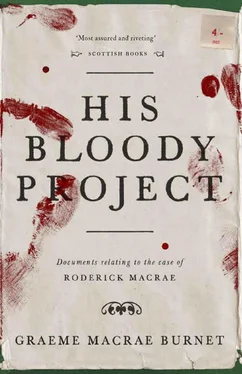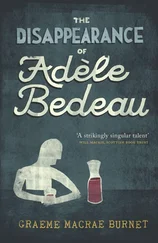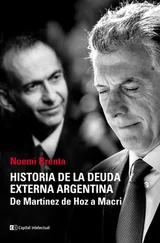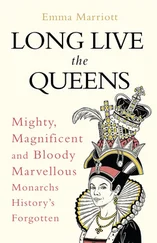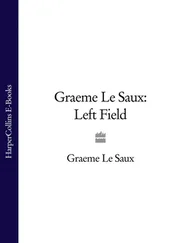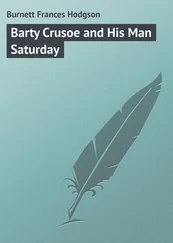Graeme Macrae Burnet
His Bloody Project
The quern performs best when
the grindstone has been pitted.
Highland proverb
I am writing this at the behest of my advocate, Mr Andrew Sinclair, who since my incarceration here in Inverness has treated me with a degree of civility I in no way deserve. My life has been short and of little consequence, and I have no wish to absolve myself of responsibility for the deeds which I have lately committed. It is thus for no other reason than to repay my advocate’s kindness towards me that I commit these words to paper.
So begins the memoir of Roderick Macrae, a seventeen-year-old crofter, indicted on the charge of three brutal murders carried out in his native village of Culduie in Ross-shire on the morning of the 10th of August 1869.
It is not my intention to unduly detain the reader, but a few prefatory remarks may provide a little context to the material collected here. Those readers who prefer to proceed directly to the documents themselves are of course free to do so.
In the spring of 2014, I embarked on a project to find out a little about my grandfather, Donald ‘Tramp’ Macrae, who was born in 1890 in Applecross, two or three miles north of Culduie. It was in the course of my research at the Highland Archive Centre in Inverness that I came across some newspaper clippings describing the trial of Roderick Macrae, and with the assistance of Anne O’Hanlon, the archivist there, discovered the manuscript which comprises the largest part of this volume.
By any measure, Roderick Macrae’s memoir is a remarkable document. It was written in the gaol at Inverness Castle approximately between the 17th of August and the 5th of September 1869, while Roderick awaited trial. It was the existence of the memoir, rather than the murders themselves, which turned the case into something of a cause célèbre. The memoir — or at least the most sensational parts of it — was later reprinted in countless chapbooks or ‘penny dreadfuls’ and provoked great controversy.
Many, especially among the literati of Edinburgh, doubted its authenticity. Roderick’s account revived memories of the Ossian scandal of the late eighteenth century in which James Macpherson claimed to have discovered and translated the great epic of Gaelic poetry. Ossian quickly assumed the status of a classic of European literature, but was later found to have been a fake. For Campbell Balfour, writing in the Edinburgh Review , it was ‘quite inconceivable that a semi-literate peasant could produce such a sustained and eloquent piece of writing … The work is a hoax and those who extol this most pitiless murderer as some kind of noble savage will in time be left red-faced.’* For others, both the murders and the memoir attested to the ‘terrible barbarism which continues to thrive in the northern regions of our country [and which] all the efforts of our dedicated presbytery and the great improvements† of the past decades have failed to eradicate.’‡
* Campbell Balfour, ‘Our Century’s Ossian’, Edinburgh Review, October 1869, No. CCLXVI.
† This is a reference to the Highland Clearances.
‡ Editorial, the Scotsman, 17 September 1869.
For yet others, however, the events described in the memoir provided evidence of the injustice of the feudal conditions under which the Highland crofter continued to toil. While taking care not to condone his actions, John Murdoch, who was later to establish the radical newspaper The Highlander , saw in Roderick Macrae ‘a figure driven to the edge of his reason — or beyond — by the cruel system which make slaves of men who wish only to eke an honest living from a borrowed patch of land.’§
§ John Murdoch, ‘What we might learn from this case’, Inverness Courier, 14 September 1869.
As to the authenticity of the document, it is not possible, a century and a half later, to provide a definitive answer. It is without doubt remarkable that anyone so young could produce such an eloquent account. However, the idea that Roderick Macrae was a ‘semi-literate peasant’ is a product of the prejudice which continued to exist towards the north in the affluent cities of the Central Belt. The curriculum of the nearby Lochcarron primary school from the 1860s records that children were instructed in Latin, Greek and science. Roderick could have expected a similar education at his school in Camusterrach and his memoir attests both to this and to the fact that he was an uncommonly gifted pupil. The fact that Roderick could have written the memoir does not, of course, prove that he did. For this we have the evidence of the psychiatrist, James Bruce Thomson, whose own memoir attests to having seen the document in Roderick’s cell. Sceptics could (and did) aver that Thomson never actually saw Roderick write anything, and it must be admitted that, were the memoir to be submitted to a modern trial, the chain of evidence could not be wholly verified. The idea that the memoir was actually written by another hand (the chief suspect being Roderick’s advocate, Andrew Sinclair) cannot entirely be dismissed, but it requires the convoluted thinking of the most outré conspiracy theorist to believe this to be the case. Then there is the content of the document itself, which contains such a wealth of detail that it is scarcely plausible that it was not written by a native of Culduie. Furthermore, Roderick’s account of the events leading up to the murders did, with some minor exceptions, largely tally with the evidence of other witnesses at the trial. For these reasons, and having examined the manuscript first-hand, I have no doubts as to its authenticity.
In addition to Roderick Macrae’s account, this volume also includes the police statements of various residents of Culduie; the post-mortem reports on the victims; and, perhaps most fascinatingly of all, an extract from J. Bruce Thomson’s memoir, Travels in the Border-Lands of Lunacy, in which he recounts his examination of Roderick Macrae and a visit he made to Culduie in the company of Andrew Sinclair. Thomson was the Resident Surgeon in charge of the General Prison for Scotland at Perth, where those deemed unfit to stand trial on grounds on insanity were housed. Mr Thomson put the opportunity this position afforded him to good use, publishing two influential articles — ‘The Hereditary Nature of Crime’ and ‘The Psychology of Criminals’ — in the Journal of Mental Science . He was well-versed in the new theory of evolution and the still nascent discipline of Criminal Anthropology, and while some of the views expressed might be unpalatable to the modern reader, it is worth bearing in mind the context in which they were written, and that they represent a genuine effort to move beyond a theological view of criminality and reach a better understanding of why certain individuals come to commit violent crimes.
Finally, I have included an account of the trial, drawn from contemporary newspaper coverage and the book A Complete Report of the Trial of Roderick John Macrae , published by William Kay of Edinburgh in October 1869.
It is not possible, almost a century and a half later, to know the truth of the events recounted in this volume. The accounts presented here contain various discrepancies, contradictions and omissions, but taken together they form a tapestry of one of the most fascinating cases in Scottish legal history. Naturally I have come to my own view of the case, but I shall leave it to the reader to reach his or her own conclusions.
A note on the text
As far as I have been able to ascertain, this is the first time Roderick Macrae’s memoir has been published in its entirety.
Читать дальше
